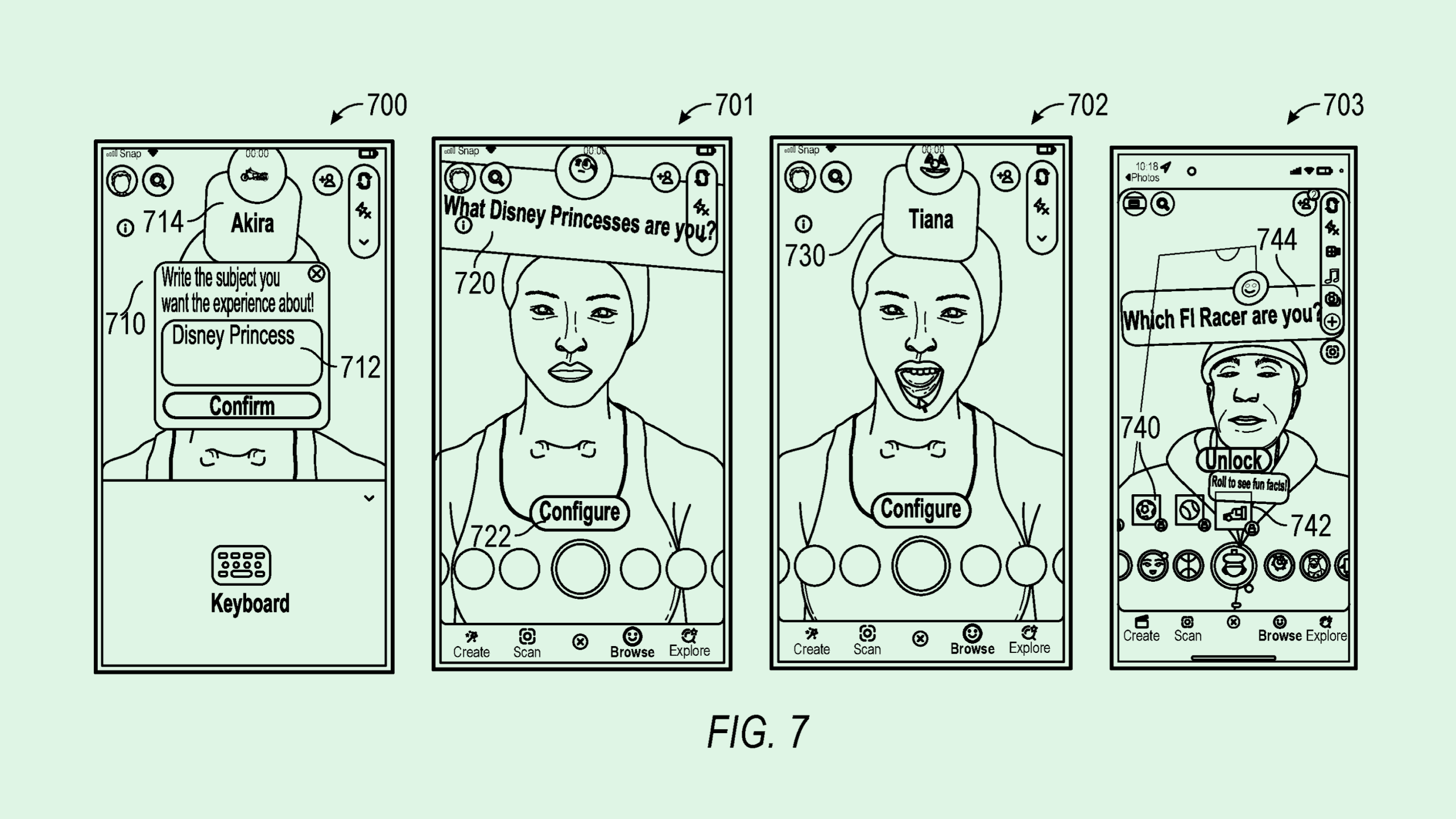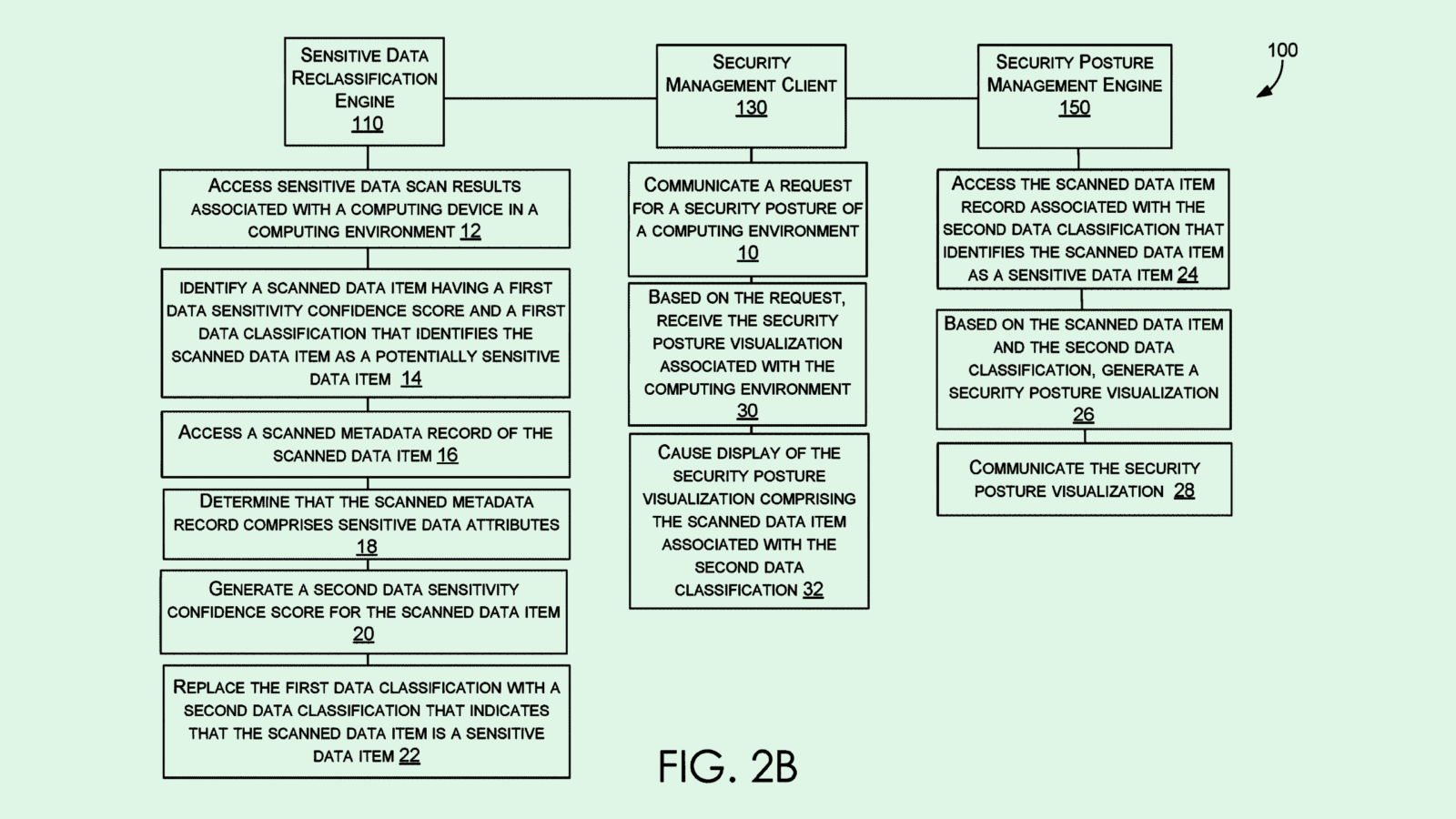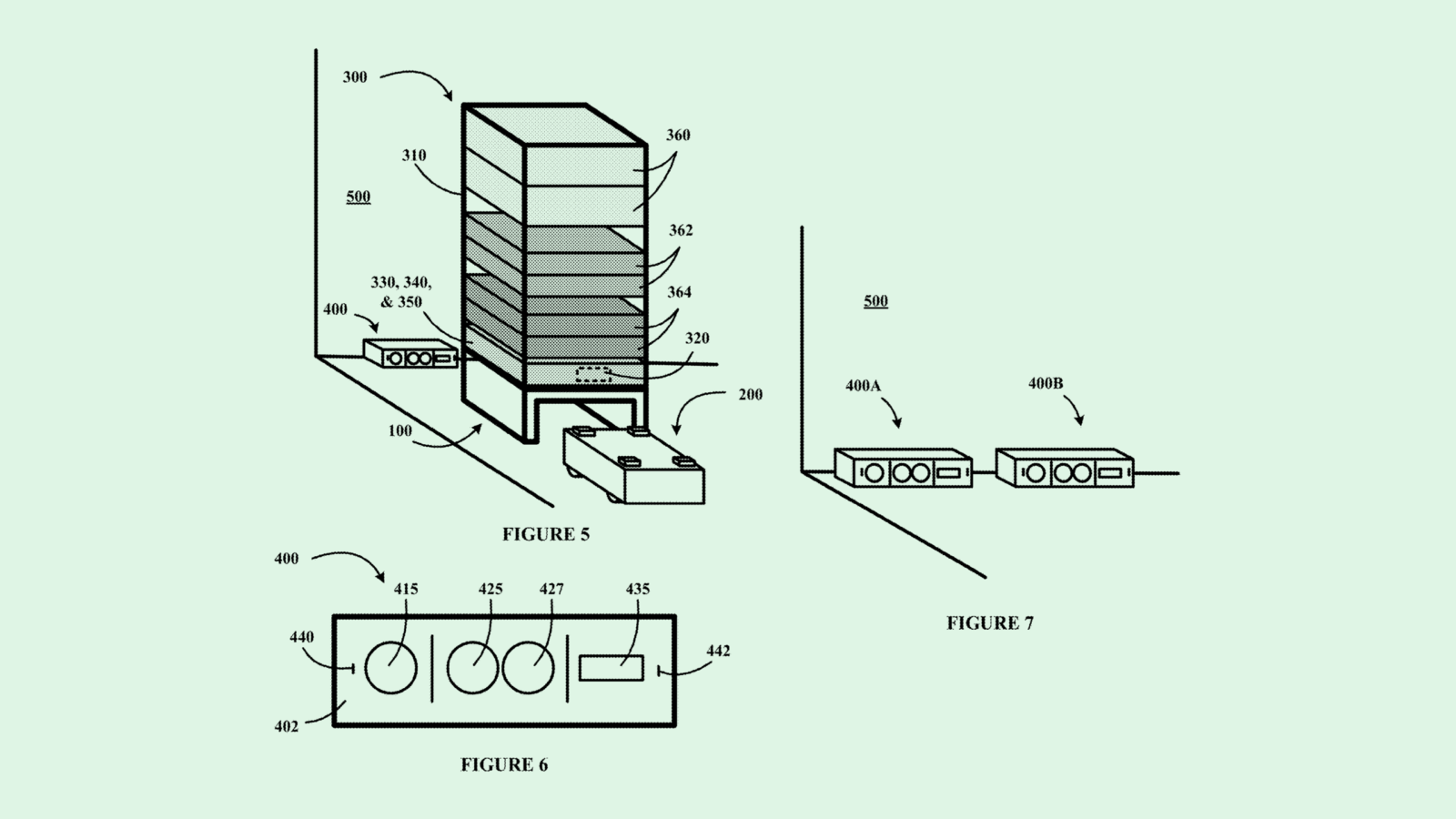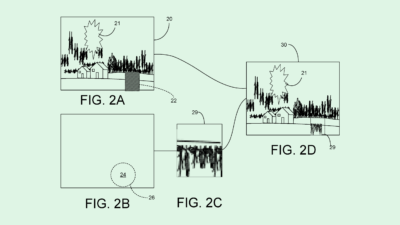Snap’s Generative AR Patent May Target Developers, Brands
But Meta’s AI may have Snap’s beat “just in sheer volume” of data, one expert said.

Sign up to uncover the latest in emerging technology.
Snap wants to put AI to work.
The social media firm is seeking to patent “XR based experiences based on generative model output.” This uses machine learning to enhance extended reality experiences based on user inputs.
The manual creation of XR experiences “can add up to make the creation of high-quality images (e.g., for use in advertising) a significant expense and detract from the overall use and enjoyment of the system,” Snap said in the filing.
Snap’s tech gives users access to a generative AI model capable of creating artificial reality objects in real time in their field of view, whether that be via a smartphone or a set of smart glasses.
When a user gives this system a description, the model first translates its attributes into “data objects,” or lines of code. The extended reality application then takes that data and renders it into the digital object that the user originally described.
Snap noted that this tech can “leverage learned information about users,” such as user profile data, to give the model more context when creating digital objects. This could be particularly useful for advertising.
After Meta announced the sunsetting of its AR studio, Meta Spark, Snap has reportedly been picking up the developers looking for a place to create. Though Meta’s decision left a lot of the AR community confused and blindsided, especially after the debut of its Project Orion smart glasses, the move may be related to its AI work, said DJ Smith, co-founder and chief creative officer at The Glimpse Group.
With generative models “democratizing” the ability to create AR imagery, “people won’t need that studio to create those experiences,” said Smith. “They will be able to essentially go in and ask for something to be made, and the AI system will make it.”
With that in mind, it makes sense that Snap would seek to patent its own generative extended reality tools. “Using AI to create immersive experiences, this is what the whole industry is starting to do right now,” said Smith.
And while Snap is currently winning as a result of Meta’s decision, AI is a whole other playing field, said Smith. The quality of a model is directly linked to the data it’s fed in training — more high-quality, authentic data generally leads to better performance.
And “just in sheer volume, Meta will have a better model,” said Smith. “It just has more data to leverage. Meta has a huge advantage over everyone because they have so much content.”
One thing that these camps have in common, however, is that all roads lead back to digital advertising (where Snap and Meta make most of their money). AI will let developers and advertisers make these types of experiences faster and more efficient, he said.
“That’s their motivation for patenting this and their motivation for putting all of the R&D into this: allowing their users and their brands to make more compelling content,” said Smith.











